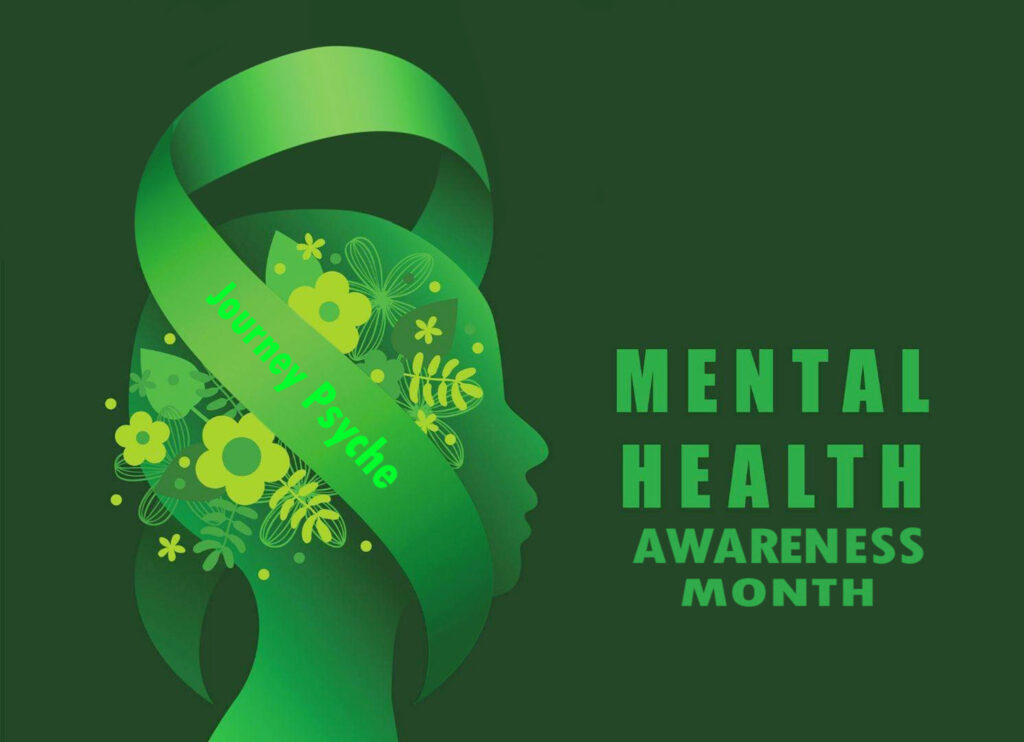Let’s Talk Mental Health Awareness Month
Mental Health Awareness Since 1949, Mental Health Awareness Month has been a pillar moment, addressing the challenges faced by millions of Americans living with mental illness. Mental illnesses impact a significant percentage of the population, with 19% of adults, 46% of teenagers, and 13% of children affected each year. It’s important to recognize that people struggling with their mental health are all around us, whether they are members of our family, neighbors, colleagues, or acquaintances. Unfortunately, only half of those affected receive treatment due to the stigma attached to mental health. Untreated mental illness can lead to higher medical expenses, poor performance at school or work, limited employment opportunities, and an increased risk of suicide. Acknowledging and addressing mental health concerns with compassion and understanding is crucial. Mental illness is a physical illness that affects the brain and results in disturbances in thinking, behavior, energy, or emotion. These disturbances can make it challenging to manage the usual demands of everyday life. The causes of such illnesses can be complex and may include factors such as genetics, brain chemistry, brain structure, experiencing trauma, or having another medical condition, such as heart disease. Ongoing research is helping to uncover the underlying causes of these illnesses. Two Most Common Mental Health Conditions Are Anxiety Disorders More than 19% of adults each year struggle with some anxiety disorder, including post-traumatic stress disorder (PTSD),obsessive-compulsive disorder (OCD), panic disorder (panic attacks), generalized anxiety disorder, and specific phobias. Mood Disorders Mood disorders, such as depression and bipolar, affect nearly 10% of adults each year and are characterized by difficulties in regulating one’s mood. What You Can Do to Help Even though society has become more accepting of mental illness over the years, research suggests that the stigma attached to mental illness still persists. This is largely due to inaccurate media portrayals and a lack of understanding about mental health. Sadly, people tend to have more negative attitudes towards mental health conditions compared to other illnesses and disabilities such as cancer, diabetes, or heart disease. Stigma Stigma not only reduces the number of people seeking treatment but also impacts the availability of resources required for proper treatment. Stigma and misinformation can feel like insurmountable obstacles for someone struggling with mental health. Here are a Few Powerful Things You Can Do to Help It is essential to respect and accept individuals who are coping with mental illness. Viewing them as individuals rather than their illness can significantly impact their recovery. Advocating for their rights and opportunities within our community can ensure equal treatment. Educating ourselves about mental health can enable us to provide better support to those affected in our communities and families. Helping Patients Live Their Best Life At Journey Psyche, everyone deserves to live their best life. If you are considering booking a new or upcoming appointment, you may have questions about what to expect. Our patient success stories are designed to answer these questions and showcase the transformative power of working with a team dedicated to your mental well-being. We hope these stories inspire you to take the first step toward a healthier life. All Work /Success Stories Untreated Anxiety Almost Derailed a Career Success Stories ADHD A CEO’s Path to Mental Focus and Clarity Success Stories Katie ADHD was becoming compounded by a mood disorder she was not yet aware of Success Stories A Millennial Mom’s Bout with Bipolar Disorder Success Stories Veronica’s change of course to overcome Depression and Bipolar Success Stories Depression Blues: Mark’s journey to a bright beautiful future Success Stories
Let’s Talk Mental Health Awareness Month Read More »







